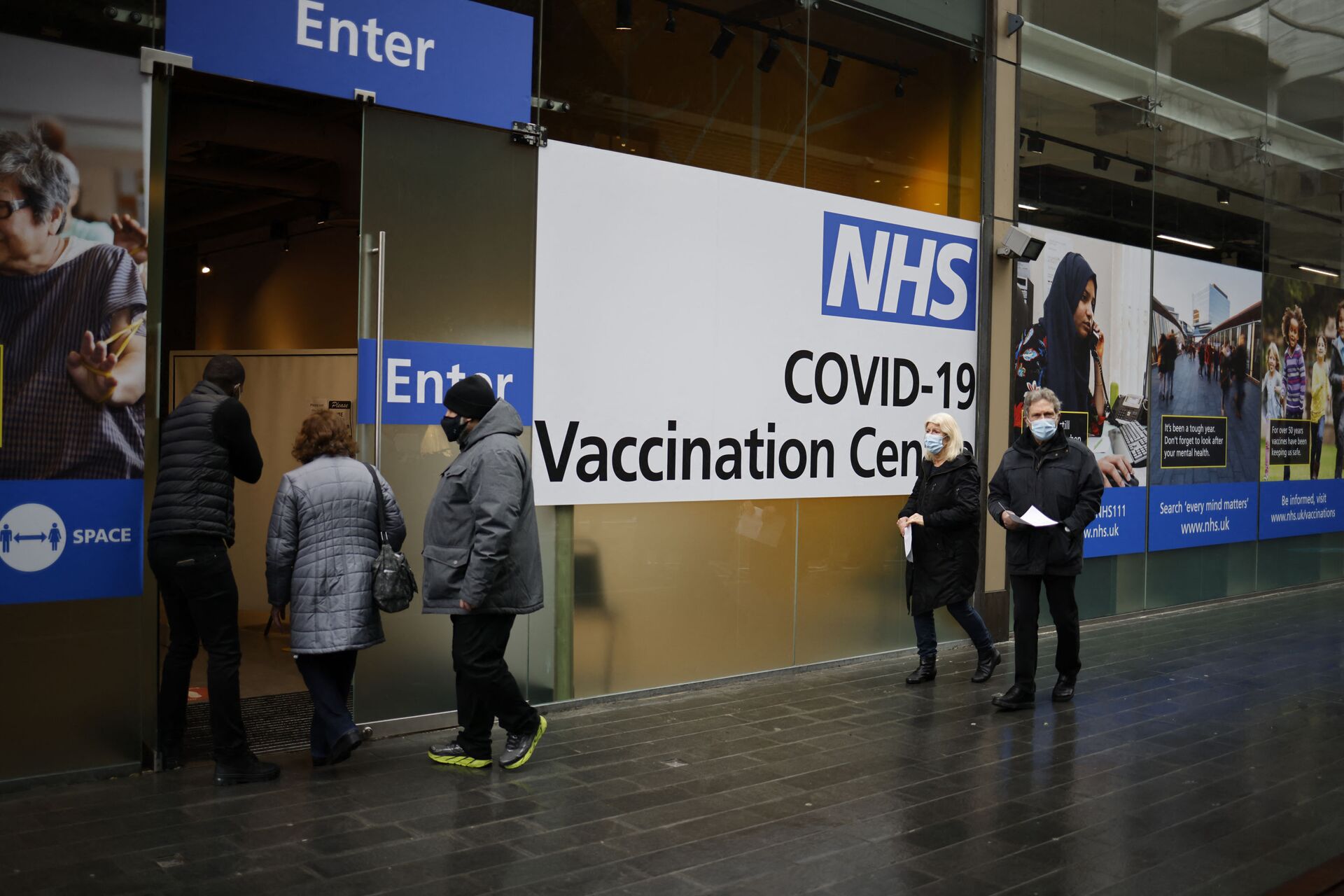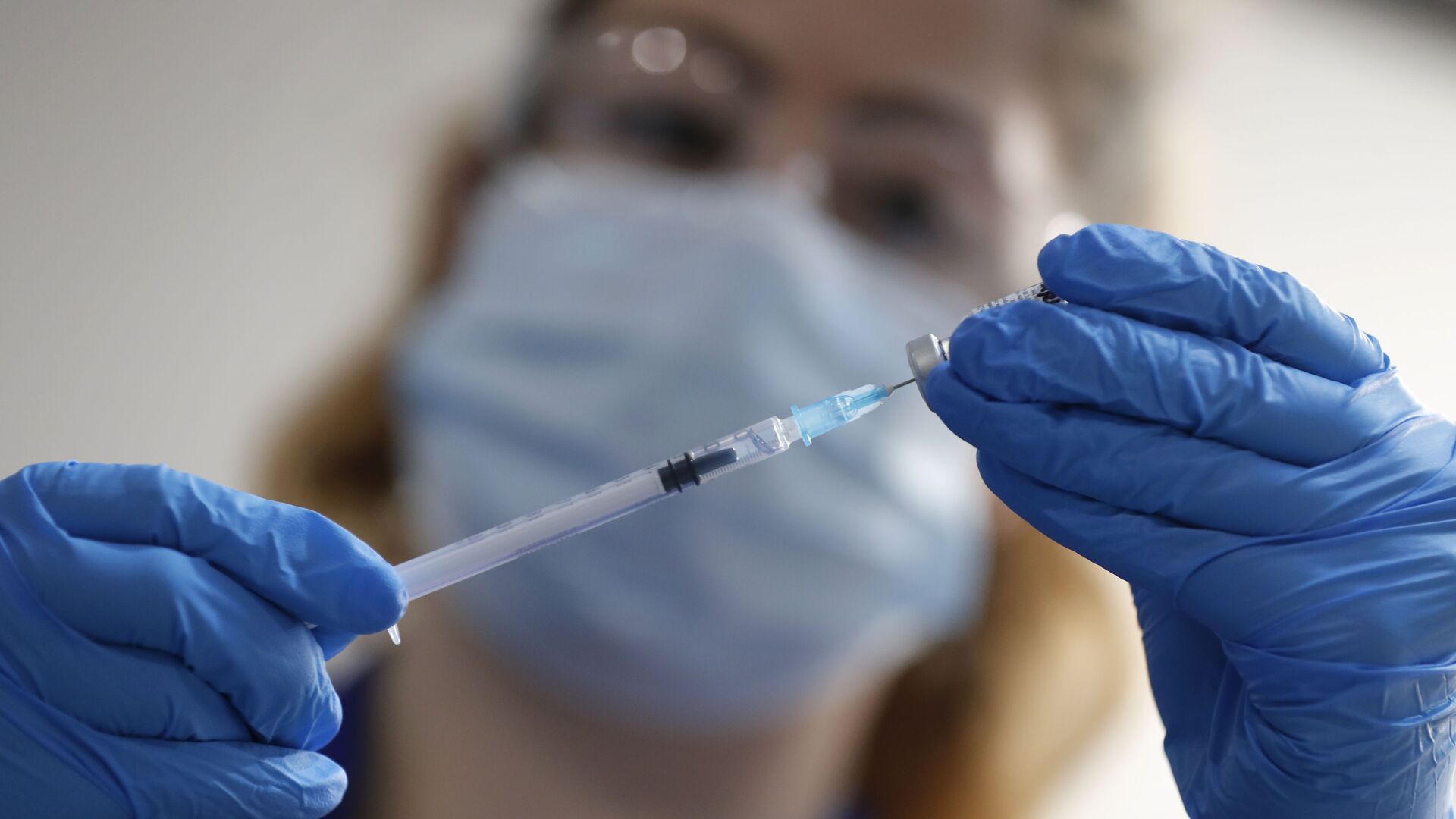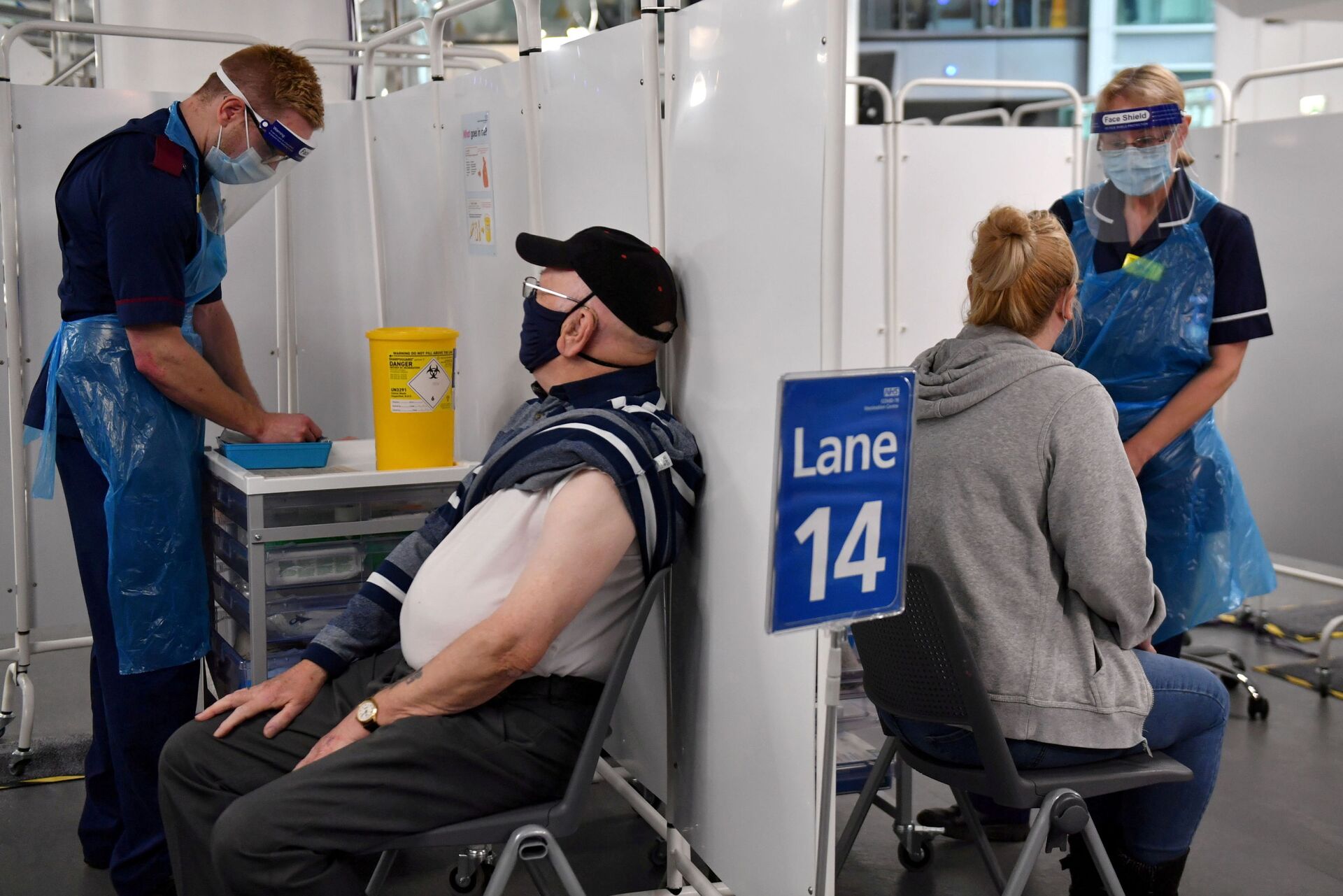The UK government is planning to make COVID-19 vaccination mandatory for most of England’s care home workers, with the measure likely to be extended to all National Health Service (NHS) staff as well, reported The Guardian.
In line with the purported measure, most of the 1.5 million people working in social care across the nation will be on the clock to receive a coronavirus jab in 16 weeks or face losing their jobs. Furthermore, ministers are said to be considering introducing compulsory COVID-19 and winter flu vaccination for 1.38 million people directly employed by the NHS in England.
Ministers are ostensibly hoping the move will reduce the spread of the respiratory disease in care homes and hospitals by infected staff. The Department of Health and Social Care (DHSC) is launching two separate consultation exercises into the planned measures, writes the outlet.
According to the minutes of the latest meeting of the government’s Scientific Advisory Group on Emergencies, the measure is being mulled despite vaccination figures showing that, as of 6 June, 89 percent of NHS staff have been administered their first dose and 82 percent have had both.
Today's #COVID19 #vaccine update thread. 🧵
— COVID19 Vaccine Tracker 🇬🇧 (@VaccinationsUK) June 15, 2021
💉 368,555 jabs recorded today!
💉 That's 255 jabs per minute!
Stay positive everyone, we're getting there! pic.twitter.com/D7aM5NQ0Vd
As for adult care home staff, jab statistics show that 83.7 percent had received at least one dose by 6 June and 68.7 percent had been double-jabbed.
‘Compulsion is a Blunt Instrument’
Opinion is split on the reported measure, with a wave of opposition already triggered among groups representing medical staff in both services. Critics argue that the UK government could be potentially sued under European human rights law or equality legislation for breaching the freedom of people employed in the caring positions by rendering the immunisation mandatory.
Concerns have been cited that the mulled measure might backfire if workers opt to quit rather than get the jabs.
Despite the fact that vaccination against Hepatitis B, for example, is already mandatory for staff in some areas, such as surgery, the British Medical Association warned on Tuesday that “compulsion is a blunt instrument that carries its own risks”.
“While some healthcare workers are already required to be immunised against certain conditions to work in certain areas, any specific proposal for the compulsory requirement for all staff to be vaccinated against Covid-19 would raise new ethical and legal implications,” said the association.
The NHS Confederation, which represents health service trusts in England, has weighed in on what it termed “unhelpful” plans to introduce compulsory immunisation, cautioning that hospital chiefs are “unlikely to welcome a move to mandating the vaccine for NHS staff”.
Some senior hospital figures were believed to be anxious in the face of “difficult conversations” with black and minority ethnic staff, citing vaccine take-up rates as lower among them than among white NHS personnel.
Meanwhile, many trusts were ostensibly having difficulty persuading young female employees to receive the COVID jabs among rampant fears that the procedure might affect their fertility.
“The government hasn’t thought through the consequences of this. Hospital trusts could end up having to suspend or even dismiss members of staff who continue to refuse to be vaccinated against Covid in defiance of a policy requiring them to get jabbed,” a senior NHS figure was cited as saying.
Similarly opposed to proposed mandatory jabs for NHS staff, the Royal College of Nursing chief executive, Donna Kinnair was cited as saying:
“It’s essential that staff have the opportunity to fully understand and have autonomy over what goes into their bodies. It is counterintuitive to introduce a policy which could affect recruitment and retention in a sector which is already chronically understaffed.”
Nevertheless, ministers including the health and social care secretary, Matt Hancock, maintain that arguments in favour of protecting patients from potentially infectious staff outweigh ethical or legal implications.
Hospital-acquired COVID-19 resulted in the deaths of at least 8,700 inpatients since the pandemic began in March 2020, reported The Guardian.

Laura Churchward, director of strategy at University College London hospital, one of the NHS’s biggest trusts, was recently cited by the Health Service Journal as acknowledging that the move might become "mandatory for roles with exposure to patients.”
A DHSC spokesperson was quoted as saying:
“Vaccines are our way out of this pandemic and have already saved thousands of lives, with millions of health and care staff vaccinated."
Here’s the key table from @PHE_uk new report on vaccine efficacy against hospitalisation with Delta variant:
— John Burn-Murdoch (@jburnmurdoch) June 14, 2021
After 1 dose
• Pfizer: 94% effective
• AstraZeneca: 71% effective
After 2 doses
• Pfizer: 96%
• AstraZeneca: 92%
Full preprint here: https://t.co/JQQjo0gSdg pic.twitter.com/osSjIZ0eA6
The report comes as UK Prime Minister Boris Johnson earlier announced a four-week delay until 19 July to ‘Freedom Day’ - the final stage of lifting COVID-19 lockdown measures - as a result of the spread of the Delta virus variant. Ministers claimed the postponement was intended to buy time for the vaccination drive to cover more people.
More than 71 million doses of COVID-19 vaccine have been administered in the UK, but, as the delta variant dominates, the number of new cases has been rising.
According to Public Health England, that the variant now accounts for 90 percent of UK cases, with research indicating the Delta variant is associated with an estimated 60 percent higher risk of transmission.



